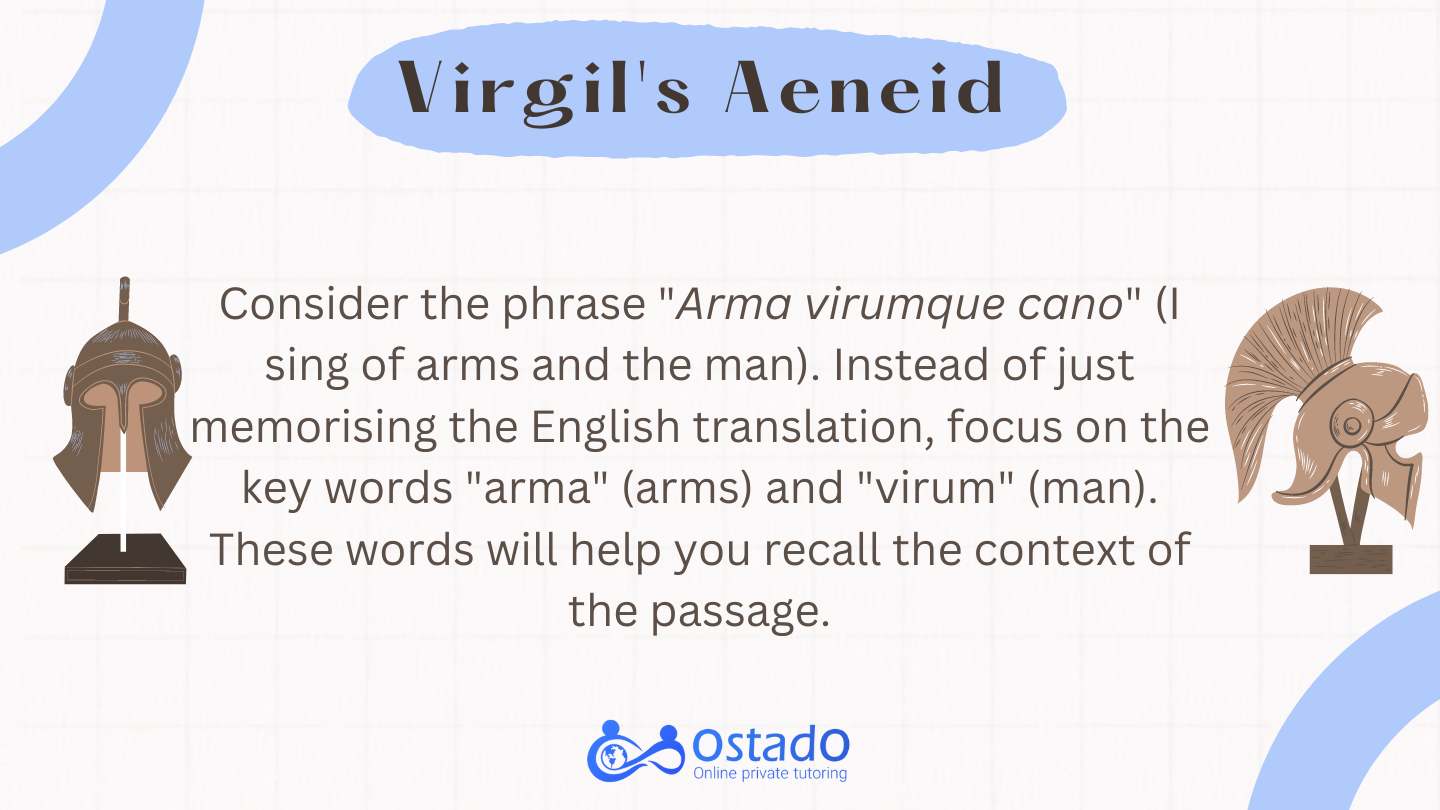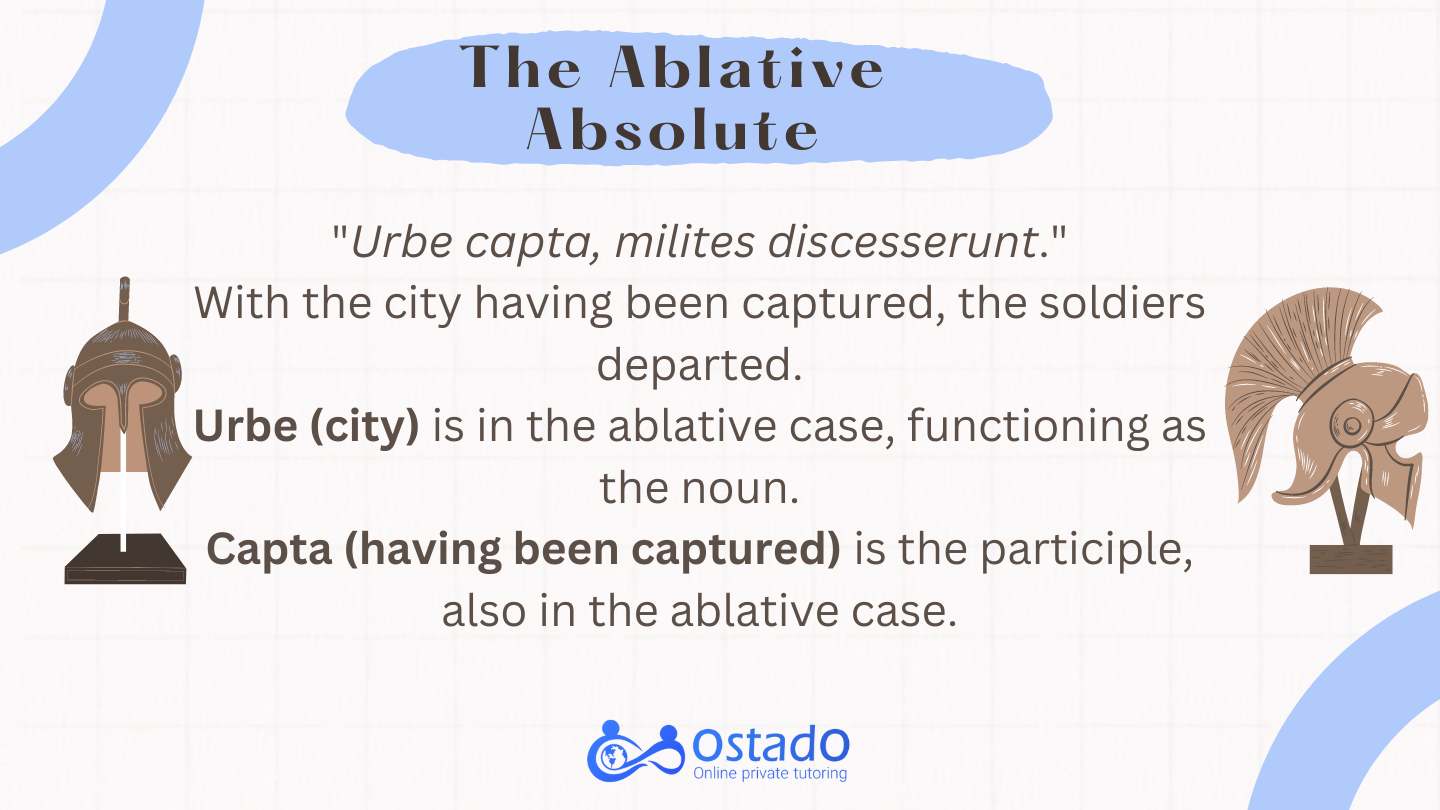Latin is the origin language of Roman languages such as French and Spanish. And it is beautiful. After all, great minds used it to create the world of philosophy and rich literature that are still enjoyed today.
But, let’s admit, it is not an easy language to learn with so many rules for verbs and nouns.
GCSE Latin revision needs a targeted study with text analysis and translations. With the right strategies for your GCSE Latin revision, you will get the best results. Let’s take a look:
What Are the Best Latin GCSE Revision Techniques?
Getting good grades on GCSE is not that hard. Focus on the Set Texts you have studied during your course. Make translation and text analysis your priority.
-
Crack the Code of Your Set Texts
It’s tempting to memorise the Set Texts. You should know it’s not that easy and not so helpful.
Think of your Set Text as a puzzle code to be cracked!
Identify the connections between Latin and English versions to solve this puzzle.
First, you should learn important phrases in Latin and their related English versions. Pay attention to keywords.
Remember, knowing the flow of the text is more important than knowing every single word.

2. Supercharge Your Revision Resources
GCSE revision books are helpful tools. Use exam board-based revision books such as OCR GCSE Latin Revision Guide.
For Verse, prose and culture, use active learning techniques such as mind mapping and flash cards. Not sure how to do so? Quizlet has expert-verified flashcards to help you get started.
BGS Classics Podcast is a valuable tool for auditory learners. It’s also great to revise on the go.
Also, pay attention to past papers and marking schemes. They help you figure out what kind of questions you’ll be asked. Below are the recent past papers:
- 677914-question-paper-literature-and-culture
- 678011-mark-scheme-literature-and-culture
- 677913-question-paper-verse-literature-b
- 678010-mark-scheme-verse-literature-b
- 677912-question-paper-verse-literature-a
- 678009-mark-scheme-verse-literature-a
- 677911-question-paper-prose-literature-b
- 678008-mark-scheme-prose-literature-b
- 677910-question-paper-prose-literature-a
- 678007-mark-scheme-prose-literature-a
- 677909-question-paper-language
- 678006-mark-scheme-language
Remember, your revision time is limited. Ask for expert help to sharpen your exam skills in a short period. Ostado GCSE tutors are here to provide you with everything you need for exam success.
3. Pay Attention to Latin Vocabulary and Grammar
Learning vocabulary can be tricky. Specialty if you don’t like memorising. Flashcards are a great help.
Set realistic goals, such as learning 20 words a day. Below is a list of Latin vocabulary GCSE vocabulary PDF:
For Latin grammar, try to avoid memorising. Instead, practise applying the rules. Focus on conjugate verbs and decline nouns of sentences.

4. Explore the Roman Cultural
This is one of the exciting parts of your GCSE Latin revision. Getting to know how people lived two thousand years ago. The good part is you can do a lot of exploration. Documentaries and virtual museums are excellent for understanding Roman history.
For a more GCSE-related approach, consider the Study Rocket free library.
5. Relate Latin Literature to Today’s World
Latin literature is still relevant and approachable. Theme analysis is an important portion of your exam.
So, when practising, try to apply the themes to modern issues. This way, you will be more confident towards Prose, Verse, and intertextual analysis.
Here are the best resources:
- King’s Macc Classics YouTube Channel
6. Beware The Common Mistakes
According to examiners, omission mistakes are common in translation. When you miss translating a word, it leads to a change in meaning.
So, pay attention to details. Your best resources here are past papers with a close look at the marking schemes.
Below is a list of common mistakes to avoid:
- Incorrect verbs (tense or person)
- Misinterpreting nominative and genitive cases
- Confusing vocabulary
GCSE Latin at A Glance
To obtain your GCSE in Latin, you need to pass 3 exam papers. Paper 1 is compulsory. The paper primarily tests your translation comprehension and syntax knowledge. The paper is worth 50 per cent of your GCSE.
You have the flexibility to choose the other 2 papers among:
- Prose Literature A: analysing classic Latin literature. Focuses on philosophical and historical texts.
- Prose Literature B: analysing classic Latin literature. Focuses on mythology and love.
- Verse Literature A: Latin poetry, Versa structure. Focuses on philosophical and historical themes.
- Verse Literature B: Latin poetry, Versa structure. Focuses on mythology and love.
- Literature and Culture: focuses on Roman civilization.
Each of these papers is worth 25 per cent of your GCSE.
GCSE Latin FAQ

